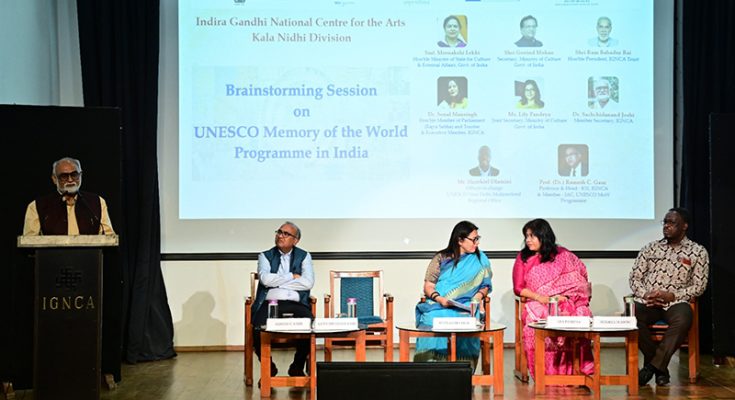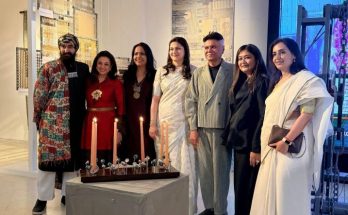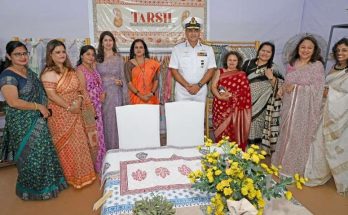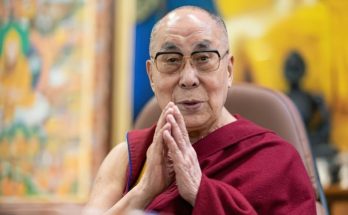New Delhi/IBNS: Memory is crucial for survival of humanity, said Union Minister for State for Culture and External Affairs, Meenakshi Lekhi in her address as the chief guest at the Brainstorming Session on UNESCO Memory of the World (MoW) Programme in India.
The programme was organised by the Kala Nidhi Division of the Indira Gandhi National Centre for the Arts (IGNCA), New Delhi.
UNESCO launched the Memory of World Programme in 1992.
It is an international initiative and cooperation strategy launched to safeguard the documentary heritage of humanity against collective amnesia, neglect, decay over time, disasters, climatic conditions, conflict and war, and deliberate destruction.
The MoW Programme calls for the preservation of the valuable archival holding and it also recognizes documentary heritage of international, regional and national significance, maintains registers of it, and awards a logo to identified collections.
Appreciating the IGNCA’s efforts at preservation of memories, minister Lekhi said that memory is crucial for the individual, society and civilization symbolically and that is why the memory of the world needs to be kept alive.
Hezekiel Dlamini, Officer-in-Charge and Adviser for Communication and Information for South Asia, UNESCO New Delhi, Lily Pandeya, Joint Secretary, Union Ministry of Culture, and Professor (Dr.) Ramesh C. Gaur, Head, Kala Nidhi Division and Member- IAC, UNESCO MoW Programme, also attended the event.
The session was chaired by Dr. Sachichidanand Joshi, Member Secretary, IGNCA.

A book titled ‘Mapping of Archives in India’ by Prof. Ramesh C. Gaur and Vismay Basu was also launched at the event.
According to Lily Pandeya, documentary heritage is representative of the world’s collective memory in tangible form and shares with humanity a pool of collective thought and experience.
Hezekiel Dlamini said MoW is a living programme for disseminating documentary heritage and beyond and work in this context is not shrinking but getting larger.
He said that UNESCO advocates strongly for having a national register for India.
Prof. R. C. Gaur, in his opening remarks, introduced the audience to the programme of MoW.
He said that programs like this are important in preserving, disseminating and conserving the heritage.
He said that after being designated as the Nodal Centre Memory of the World Programme by the Union Ministry of Culture, in 2014, IGNCA has submitted 5 nominations to the International Register.
These are the Gilgit manuscript, Maitreyivyakarana , Abhinavagupta, Natya Shashtra and First Summit Meeting of the Non-Aligned Movement Archives in 2022 (Joint Nomination).
Dr. Sachichidanand Joshi, in his closing remarks, said that the event organised by the IGNCA was the first ever brainstorming session on UNESCO Memory of World Programme in India.





